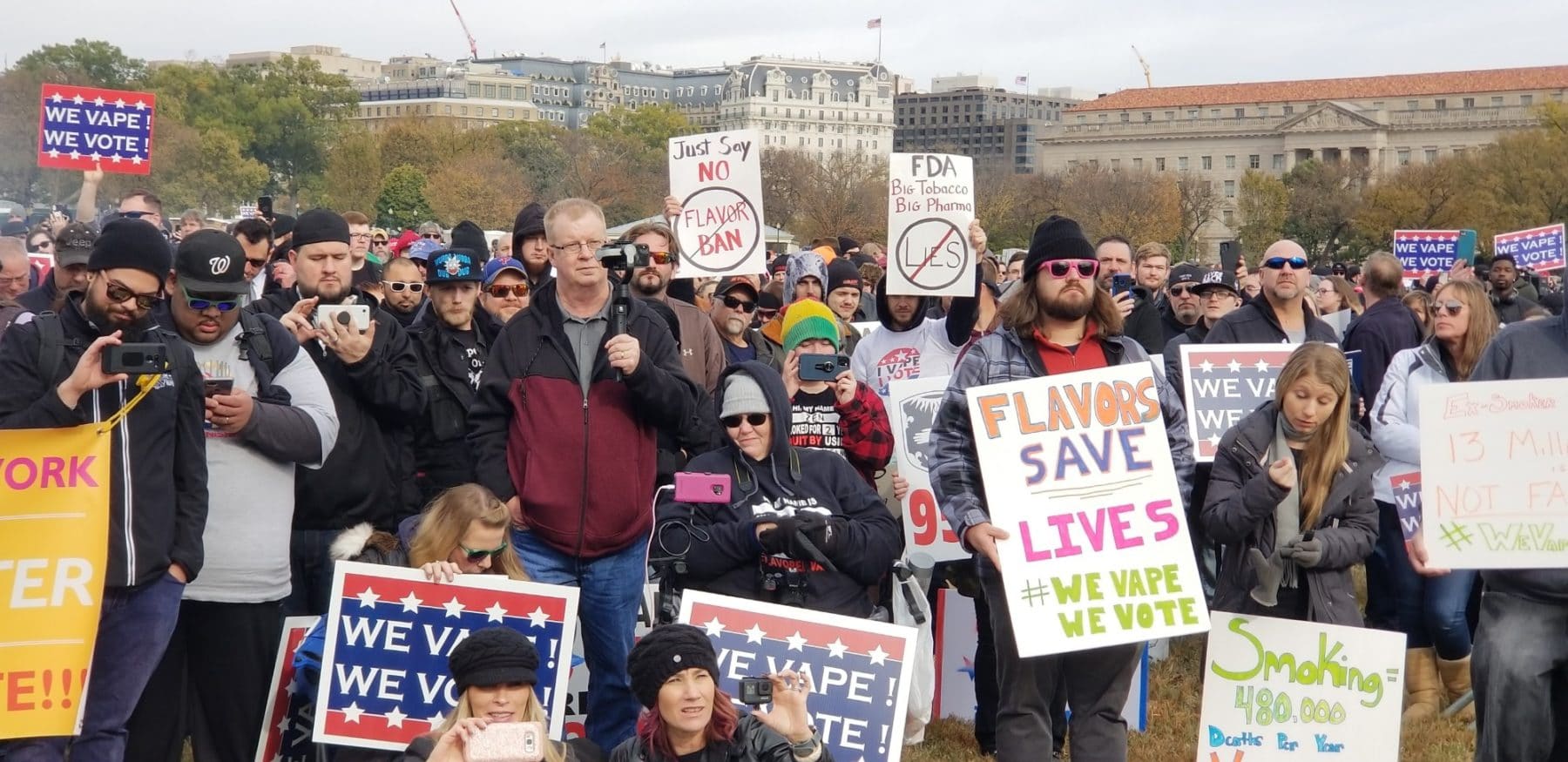Second only to impeachment, vaping has dominated the news cycle in Washington and across the country since this summer. After months of heated debate, we now await one of the most consequential decisions the Trump administration will make on health policy since taking office.
Having personally sat down with the president at the White House this past month for a spirited discussion with those representing all sides of the vaping debate, we at the American Vaping Association* hope that the administration implements a policy that both limits youth access to nicotine vapor products while also acknowledging just how important so many of these products are for millions of adults who use them to reduce or eliminate their use of known-deadly cigarettes.
When news began to break in August about “vaping” illnesses and deaths, national coverage was dominated by sensationalism. Organizations that have long taken a prohibition approach to public policy promptly pounced on the controversy and began to conflate two completely separate issues—teen experimentation with electronic cigarettes and the illnesses caused by illicit products.
Though it took nearly three months, we now know that the specific product that has caused thousands of illnesses and over 50 deaths is not one that’s available in convenience stores, gas stations or vape shops. The Centers for Disease Control and Prevention (CDC) began testing lung tissues taken from patients and has found a substance known as Vitamin E acetate in all samples. This product is used by illicit-market manufacturers to mimic the appearance of THC and marijuana oils, similar to the way that cocaine is sometimes “cut” with cheap laundry detergent. Vitamin E acetate is not present in legal nicotine vapor products.
What has been confusing for months is the use of the general term “vaping”—a verb that is not specific to the actual substance being inhaled. Both members of the Trump administration and reporters have often failed to differentiate between THC and nicotine. In fact, it took the CDC nearly three months to finally amend their recommendations to the public that they not vape to that they not vape illicitly-marketed THC.
The agency’s botched public warnings and delay in providing accurate information to consumers is a public health controversy in itself and its decision-making process warrants significant scrutiny and possible Congressional inquiries.
Adult vapers and the businesses that manufacture nicotine vapor products do not want to see teenagers using the products. That’s precisely why we have endorsed Senate Majority Leader Mitch McConnell (R-KY) and Sen. Tim Kaine’s (D-VA) bill to raise the age to use all tobacco and nicotine products from 18 to 21 nationally. Beyond that, we have pushed for federal limits on marketing and advertising as well as limits on bulk purchases of all vapor products. Our opponents have offered no such compromise, pushing prohibition alone, with no exception for any of the flavored products that are overwhelmingly used by adults seeking to reduce or eliminate their use of cigarettes.
It is critical that President Trump reject calls for prohibition. The global community is watching.
The Royal College of Physicians and Public Health England have concluded and maintained that e-cigarettes are at least 95 percent less harmful than traditional combustible cigarettes. The National Academies of Science has characterized these products as “much less harmful than smoking.” Activists funded by the likes of Mike Bloomberg, who has invested over $160 million specifically to ban e-cigarette flavors, may disagree, but their agenda is disconnected from positive public health outcomes for the 34 million Americans who still smoke cigarettes today.
President Trump seems to have put a great deal of thought into balancing a reduction in teen use of these products with the importance of these products for so many adults. He has publicly expressed concerns about shutting down an industry that employs at least 150,000 Americans and raised the issue of how overseas suppliers might flood the US market with dangerous, unregulated products if a national flavored product ban were implemented.
For the sake of millions of adults who rely on nicotine vapes to stay smoke-free and thousands of small business owners and their employees who sell them, it is critical that President Trump reject calls for prohibition. The global community is watching the United States. With so many countries following the US lead on this issue, implementing the proven-failed experiment of prohibition would not only be dangerous for American smokers, but would have long-lasting and far-reaching consequences around the world.
*The nonprofit American Vaping Association has provided grants to The Influence Foundation, which operates Filter.
Photo of a 2019 protest in Washington, DC courtesy of the American Vaping Association.





Show Comments